Get posts by email
Attempts to invalidate a movement, what is truth, and how do we build a just society
February 17, 2022
If you are arriving from Instagram you can find my first post on the freedom convoy movement here: My Line in the Sand. Also, comments have been closed on my blog for years because the spam management was too time consuming. The closing of comments has nothing to do with the topic at hand.
As I’ve navigated my way through the back and forth conversations of the last twenty days on the validity of the freedom convoy with people of different viewpoints, I’ve been trying to understand how we, the people, come to see things so differently.
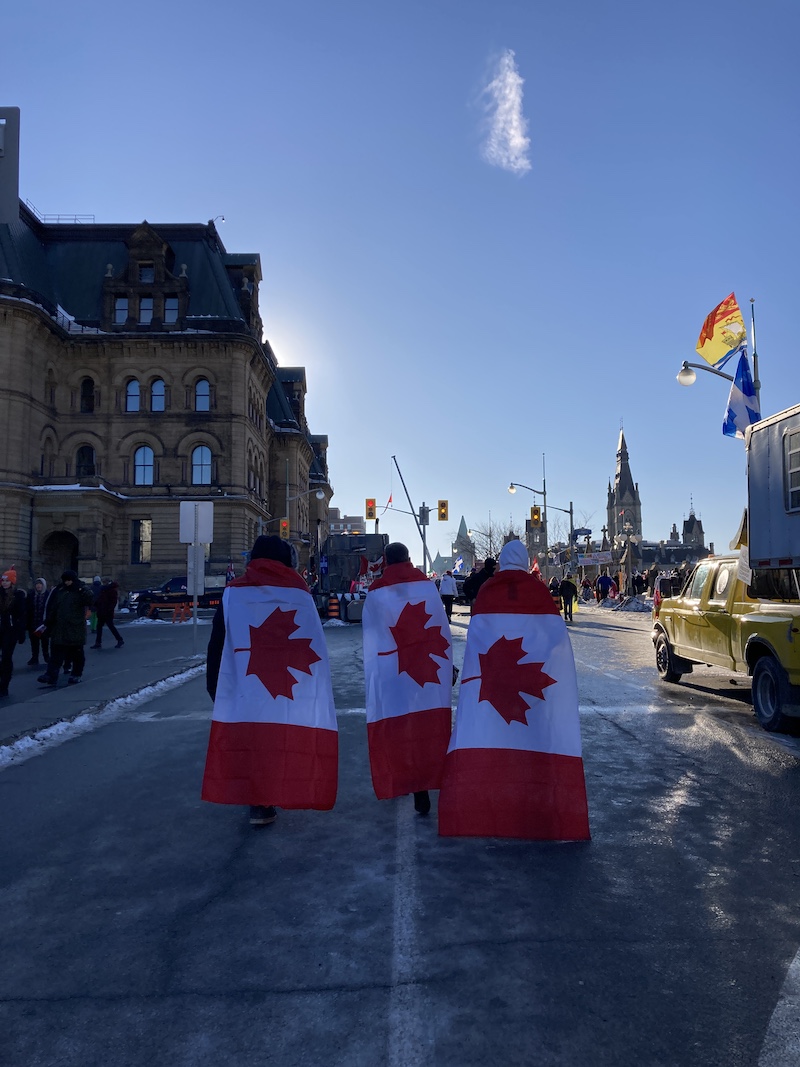
This post is in response to the conversations I’ve been having on Instagram where I have been continuously sharing coverage, parliamentary proceedings, news stories, my own experiences on the ground in Ottawa, and lots of commentary on the freedom convoy (and the culture-at-large).
In those conversations I have been playing whack-a-mole with people’s specific points of opposition to the civil (non-violent) disobedience taking place in Ottawa. And the first part of this post, after this preamble, is a direct response to those points of opposition and claims.
First, here is a reminder for you on my position with regards to unjust state authority.
When the state uses their authority to curtail and limit individual’s autonomy, responsibility, and relationality the onus is on the state to prove the merit of freedom-limiting measures versus on the individual to prove their right to freedom. If the state fails to convince a population by reasonable means why the individual’s autonomy, responsibility, and relationality must be curtailed, and the state must advance their agenda via coercion, that state action and that authority is unjust.
Specifically, I assert here that when Canada’s governing bodies, at both federal and provincial levels, moved from persuasion to coercion, defamation, segregation, and scapegoating to increase vaccination rates, their authority and actions became unjustified.
My argument and ideas around that are more thoroughly explored in my previous post. I remind you, my statements and reasoning are my own personal political theory. Which is similar too, but not exactly the same as the Canadian Charter of Rights and Freedoms. I write as a memoirist and thinker, a mother and educator, not as a politician or lawyer. Though I do assert that the Charter of Rights and Freedoms has been violated in our government’s Covid-19 vaccine mandates.
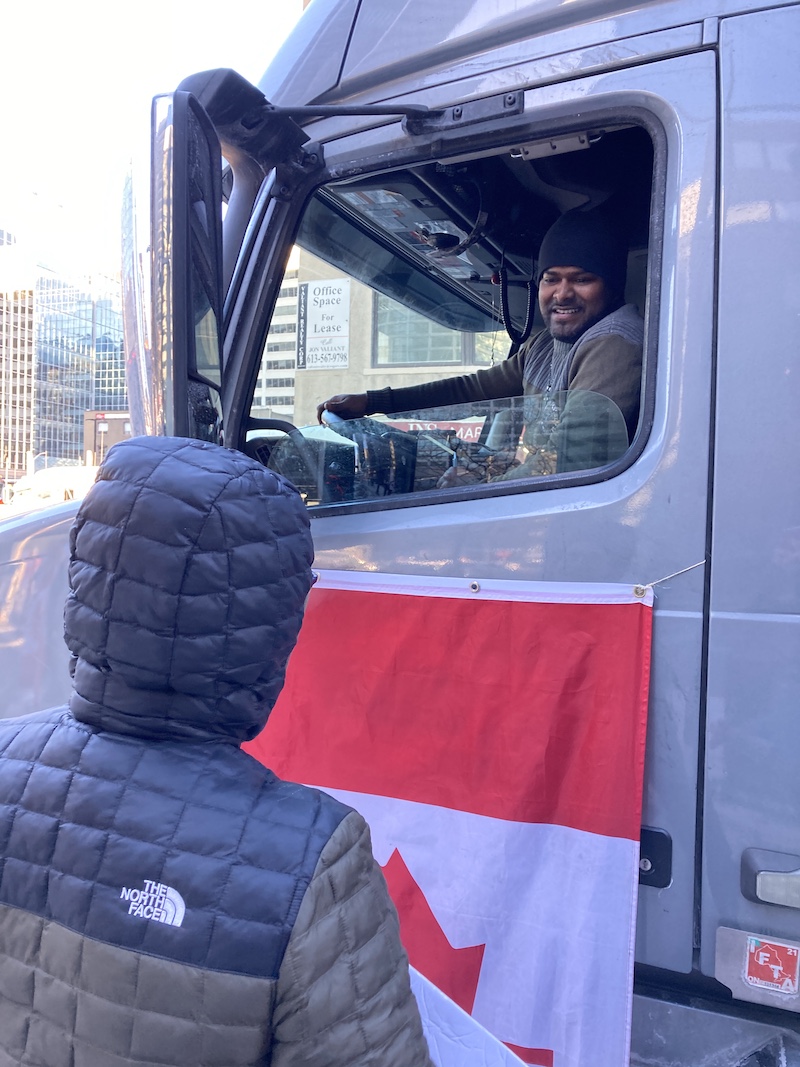
A movement is not invalidated by...
Now I would like to address the very specific points of resistance and opposition, that people have expressed to me, regarding the validity of the convoy and the Canadians they represent and the validity of Canadians that have gathered in person around the country calling the government to account for its unjust use of authority during the course of this pandemic.
Canadians (referred to hereafter as “this movement”) who oppose Covid-19 vaccine mandates; who are concerned with lockdowns and pandemic control measures on the individual, family, communities, and the whole of society; who are calling the government to account for how they’ve handled or mishandled the pandemic; and who are asserting their Canadian Charter of Rights and Freedoms are not invalidated by the following points of view.
(In the approximate order as presented to me over the past 2 weeks.)
This movement is not invalidated by:
The scent of far right ideology of some of the people attached to the freedom convoy. You’ve seen for yourself the immigrants, minorities, POC, queer, etc… folks who negate, with their very presence and support, that this movement of Canadians identifies themselves with that ilk. I’ve also been learning (I’m slow on the uptake) that in our current cultural discourse (across many nations and contexts) all you have to do to defame, demonize, or negate a person or a group is to call them a racist. It gets you off the hook of having to actually engage with their valid ideas or grievances if you can discredit them on this account.
This movement is not invalidated by:
The lack of attention, in this particular moment and movement, to every other injustice in Canada, particularly the government’s lack of political will in resolving and addressing on-going Indigenous issues: land claims, lack of clean water in First Nations communities, etc... Do those issues require a movement of Canadians to care and hold the government to task? Yes. Is this particular movement invalid because it does not include those issues in its fundamental claims. No.
This movement is not invalidated by:
The fact that this particular movement does not center who you deem to be the most vulnerable in society, it doesn’t center the voices and lived experience of “fill-in-the-blank”, it doesn’t center the social justice causes closest to your heart. I have personally seen, read, and witnessed centring and elevating the voices and lived experiences of children, the elderly, differently abled folks, vulnerable individuals disenfranchised and marginalized by mandates, the vaccine-injured, Indigenous people and POC opposed to medical mandates, immigrants and migrants, people marginalized and segregated by mandates, people with mental health issues, and more. These groups might not be your causes but they matter. Social justice is a big tent.
This movement is not invalidated by:
The discomfort, inconveniences in the lives of, and fear experienced by some Ottawa citizens. If discomfort, inconvenience and feelings of fear invalidate ideas and actions than the majority of what the government has done to Canadian citizens for the last two years is equally invalid. Which is the whole point of this movement. Someone’s “felt sense” of fear alone, does not make someone else’s actions, that cause that fear, automatically invalid. Crime and hate committed against and directed at Ottawa residents invalidates the actions of those committing those crimes. Those actions are wrong and deserve the full application of the law. But the wrongful actions of a few does not invalidate a large movement of peaceful, civil disobedience. Even if that civil disobedience causes discomfort.
This movement is not invalidated by:
The fact that the police response has not been as harsh as it would have been if the movement was led by Indigenous people. I agree with this sentiment and the underlying systemic racism it reveals. I’ve seen the footage of RCMP response to unarmed Indigenous water and land keepers “holding the line” on their ancestral land, and those police responses are unethical and wrong. All of that can be true but does not invalidate the claims of this movement.
This movement is not invalidated by:
The fact that there are larger societal forces at play, namely the impacts of neoliberal policies and late-stage capitalism, that have undermined social cohesion and people’s sense of security for years. Those forces, and others, have certainly amplified the conditions of unrest and unease that many of us feel in modern life but this movement is not invalidated by that reality.
This movement is not invalidated by:
The burn-out and the overburdening experienced in health care due to Covid-19 crippling an already “edge of crisis” healthcare system. Nor are these peaceful protests on Parliament invalidated by other people and other protestors who verbally abuse nurses and health care professionals. Those things are terrible. They should never happen. But the fact that those things have happened and do happen don’t negate other people’s right to peacefully protest everything I laid out in the beginning of this post.
This movement is not invalidated by:
The fact that you don’t trust/won’t listen to/have written off certain doctors, professionals, political parties, etc... who are tangentially connected to, associated with, or even having their voices, opinions, and expert conclusions (from law, ethics, medicine, journalism etc…) amplified by this movement. The list of well-credentialed folks who have serious concerns with vaccines, vaccine mandates, and government overreach cannot simply be swept under the rug of “those aren’t my favourite/trusted sources”.
This movement is not invalidated by:
The fact that you’ve experienced Covid-19 and the pandemic in a way different from the Canadian context or my personal context. This movement might be invalidated for you, at a personal level, people can invalidate whatever they want to individually, and we do (we unfollow, we cancel, we dismiss, etc...) but our personal will does not extend into the body politic to either invalidate or validate, unless we get enough other individuals together to collectively advance an alternative point of view. Which is exactly what’s happening with the trucker convoy, a gathering of citizens to say “we see this differently”.
I want to affirm that you can say “I don’t like this. I am concerned about this.” That is a perfectly valid position. I want to affirm that you can be a part of group that doesn’t like this.
And it is exactly what this movement is also, a group of people opposed to aforementioned pandemic measures and the Canadian government’s heavy-handedness.
We don’t like this. We’re concerned about this.
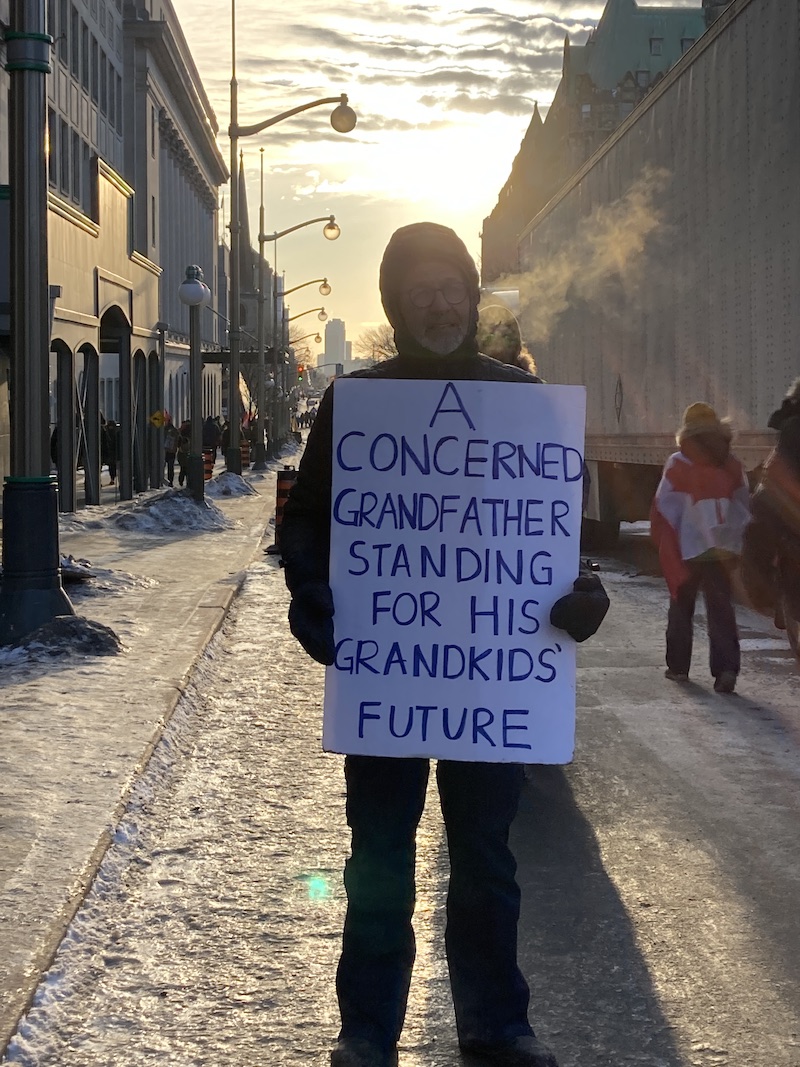
And this brings me to the crux of the issue: people see and experience things differently.
I’ve had conversations with people in social media, I've read the news reports and commentaries, I've chatted with folks IRL and what I keep bumping up against in these conversations is the truth that we see and experience the world differently.
So now, I want to bring a social science theory to this situation to explain, using one possible framework, how we’ve arrived here.
Constructivism is a theory that says that people actively construct or make their own knowledge from their social experience, from their interaction with others and the world. Further, constructivism claims knowledge is a human construction, it’s not something out there to be found, like a treasure you dig up, it’s something we make based on personal experience and one’s interpretation of those experiences.
This is a very simplified definition. Constructivism is found in many disciplines and is applied differently in those situations, I come at it from the education field.
Empirical science exists outside this lens, owing to its positivist orientation. Positivism is the idea that truth exists out there, independent of experience, as something to be discovered, quantified, and applied to other situations.
Even when empirical science is purely quantitative (data and measurement driven) it’s still interpreted and applied in the constructivist (we construct our own reality) and interpretist (we interpret our own truths) settings of people’s lives.
Viewing this particular situation through a constructivist lens, people construct their own knowledge and truth around Covid-19, vaccines, mandates, this protest, etc… People will construct their reality, their truth, with all manner of things - experience, emotion, evidence, reasoning, anecdote etc… But their “own truth” will never be an objective view on social reality. Constructivists would argue there is no objectivity on social reality.
There are other theories to explain social phenomena and also theories to guide action in response to that phenomena. This is just one.
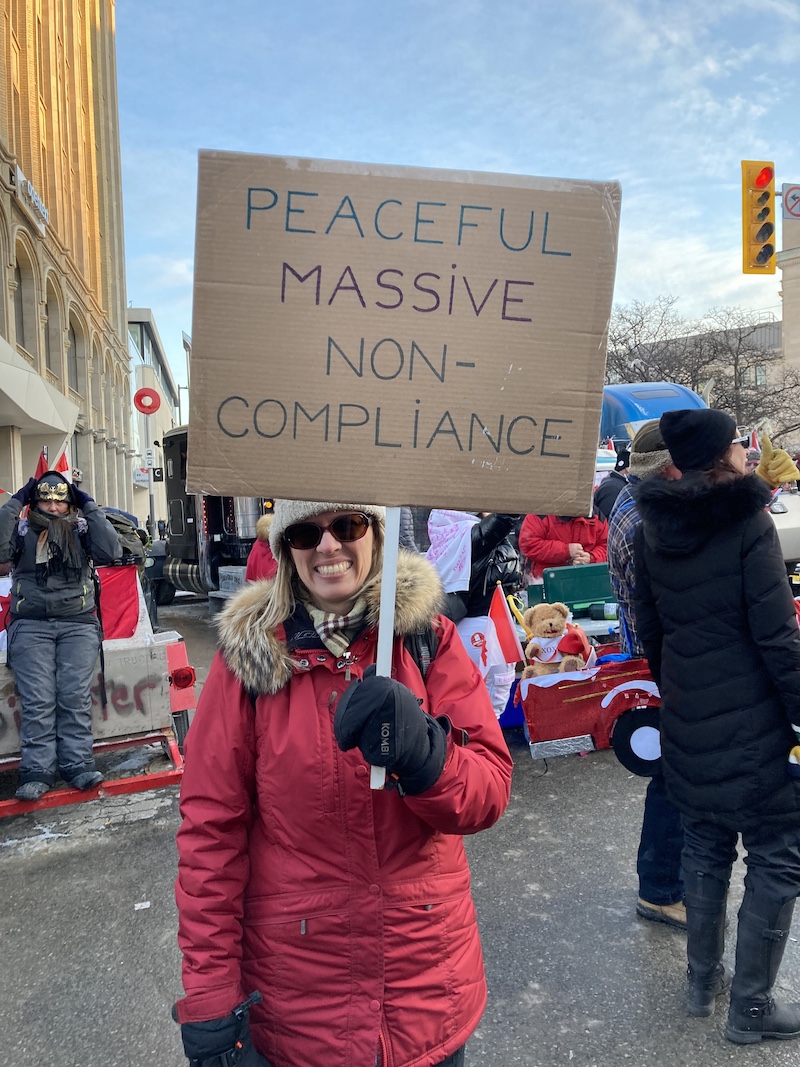
I hold a very constructivist viewpoint on this pandemic, in terms of people’s lived experience with it and therefore what they believe is true. Does a “hard facts” truth exist out there with regards to infection rates, etc… Yes, I think so. I do believe that empirical science exists and is a type of truth. And I maintain that the empiricism is compromised by corporate interest and profit motives, and gets diluted and misused in the dissemination and application.
My constructivist and interpretist reading of this pandemic is part of what informs my firm belief that the government’s response to its citizens in this pandemic has been unjust. My previous post laid out my political, spiritual and philosophical reasonings. If you cannot change someone’s constructed reality around vaccines, however “rightly” or “wrongly” you think they’ve arrived at their conclusions, using coercion, defamation, derision, and stoking division within society is not the solution.
Those are the wrong tools for the task.
What are the correct tools? Open communication, people feeling a sense of agency in the decisions that affect their lives, transparency in policy making, crystal clear metrics for when lockdown measures end, open-mindedness about other people’s lived reality, acknowledgement and recognition of vaccine injury, and many more. In short, practices and postures that build people’s capacity for responsibility and relationality as I laid out in my previous post.
It’s kind of terrifying that we all hold different ideas of reality and truth.
I don’t know enough history, anthropology, psychology, and sociology to know if we think this has been true for humans for all time. At some level it seems very reasonable to believe that individuals have experienced reality and held truths different from those around them for all time. But regardless of the past, social cohesion around shared narratives of meaning and truth is in decline in post-Christendom states, to which Canada belongs.
In no way am I suggesting we go “back” to that particular shared meaning and truth, policies based on colonial Christendom did terrible damage to Indigenous people and many others who did not fit the narrative.
Those days are gone and good riddance.
I’m simply acknowledging here that many of us ache for a shared sense of meaning, values, and framework that could inform our body politic and our collective reality. To which I ask - how would we arrive at those? And who gets to choose what those are?
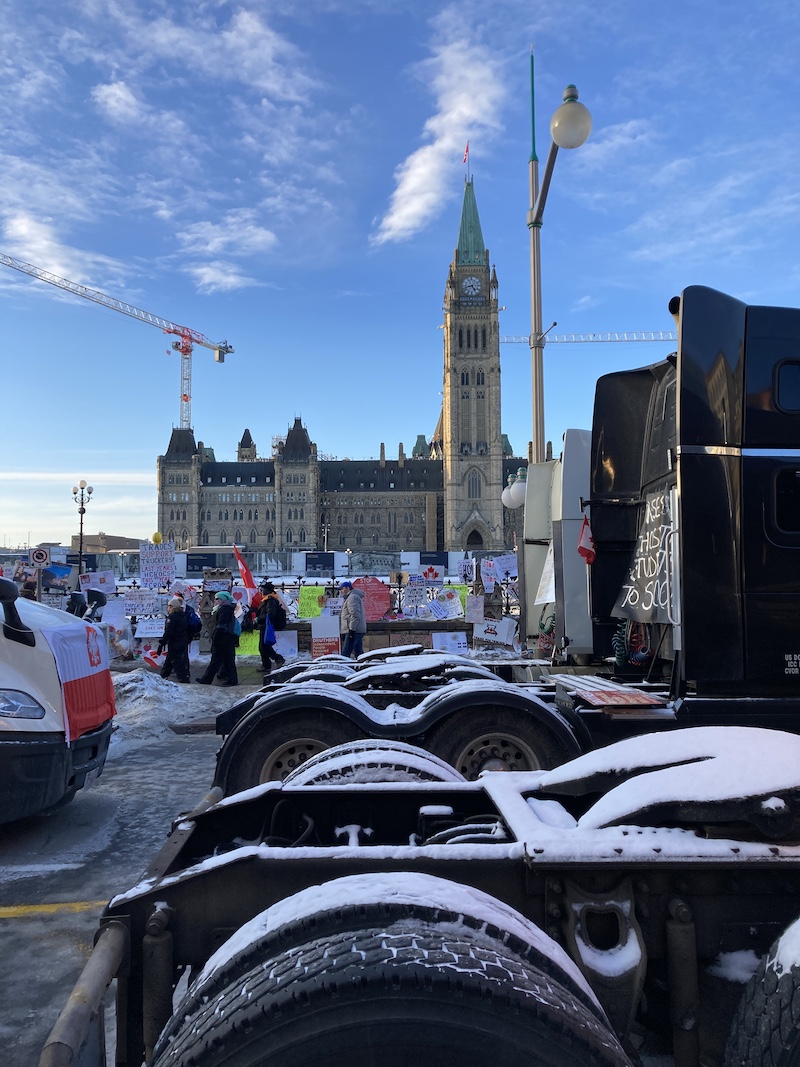
I came across the following sentiment in the past couple weeks, spoken by people who are opposed to the freedom convoy and its supporters.
“The only way to freedom is to fight for liberation from all oppressive systems, policies, and practices for everyone.”
I don’t agree. That’s like saying we don’t build a puzzle one piece at at ime, but rather we lay it down complete, whole, and done. Like somehow we’re going to achieve freedom and liberation for all in one fell swoop, encompassing all causes at one time.
My own sense of reality and truth is that we work on our own piece of the puzzle. And if possible we work with others, we rally together, because doing the work alone is not only ineffective but not how we’re meant to live as humans. We’re meant to do this together.
Interestingly, when it comes to liberation and freedom from oppression we have a Charter of Rights and Freedoms in Canada, it’s enshrined at the highest level of our law, in our Constitution, and it exists towards the aims of freedom and liberation. Is it “enough” to bring all the freedom and liberation needed? No. There’s a lot of work to be done.
But it’s a good foundation. And if you think Canadians shouldn’t appeal to the Charter to protect individual rights and freedoms because it’s not “liberatory” enough, or all-encompassing enough, I am at a loss for what we as Canadians can use to help guide us into freedom and liberation. What would you suggest?
Although we can’t appeal to some universally shared sense of meaning, values, and framework to inform our body politic and our collective reality, I do believe we can work with what’ve got in that document as a very good start.
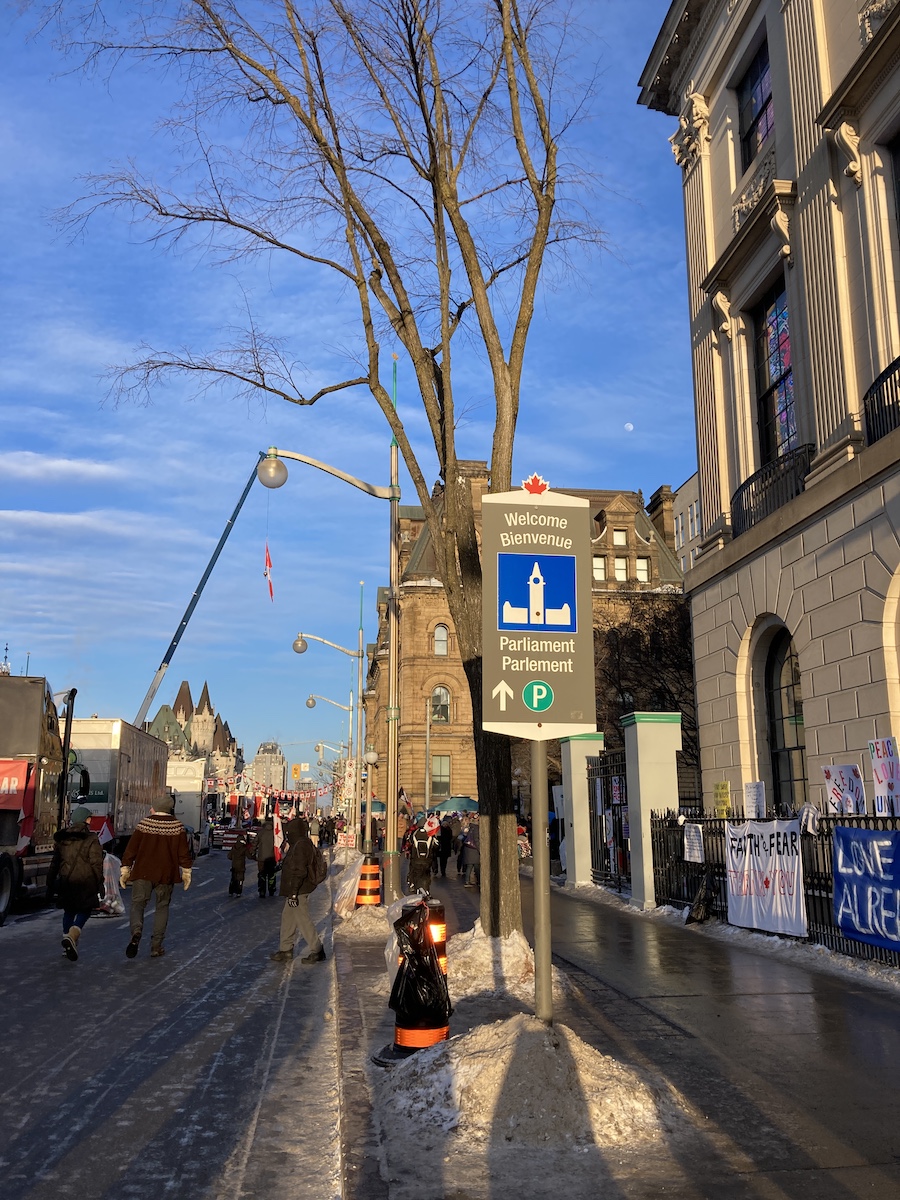
What I have realized so clearly in the last couple weeks is that people have principles, convictions, biases, beliefs, and lived experiences that guide their life. And these will not always align with my own, in fact, the opportunity for diversity in our opinions is often greater than alignment.
But maybe that’s not such a terrible thing. A biological and ecological understanding of the world teaches us that diversity contributes to the health, sustainability, and vitality of the whole system. Without that diversity we crumble. It’s easy to feel “if we only all saw things the same way it would be so much better”. I don’t think so.
I would argue that the freedom convoy and the people protesting around the country bring a much needed diversity to the narrative.
Each of us is working on the weft and warp of building a society from our diversity of belief, opinions, experiences, frameworks, and theories. And in that weaving sometimes we’ll meet up and touch the hands and join the causes of those who seem very different from us (I should hope so) and sometimes we’ll feel some distance from those we usually align with (also, I should hope so).
This is a journey I’m willing to take. Gulp. It’s a society I’m willing to build, as we weave this tapestry of humanity together.
Filed Under
You can subscribe to comments on this article using this form.
If you have already commented on this article, you do not need to do this, as you were automatically subscribed.





